Recap "All of Us Are Dead" Episode 4
Jam-packed with action, humor, pathos, pitch-black cynicism, bright-eyed optimism, cutting social commentary, and major character developments across the entire sprawling cast, the fourth episode of All of Us Are Dead seems to be where the series has truly found its stride. If it keeps up this everything-but-the-kitchen-sink approach, the copious comparisons to Squid Game may well be earned.

We’ll start with the primary vector of both the disease and the bitter sociopolitical rationale behind it, Mr. Lee. Still being interrogated by Detective Song Jae-ik, who by now is well aware of the infection raging like a wildfire throughout the city, Lee recounts all the ways the system failed his badly bullied son, whose plight he wasn’t even aware of until the poor kid tried to kill himself. The school’s attempts to rectify the situation are a joke, the awful principal literally laughs at Lee for calling the police, and of course the biochemical cure Lee comes up with is worse than the original disease.
But that suits Lee, who has come to believe that the virus he’s concocted merely exposes the truth about human nature. Normally, he says, we’re like seeing-eye dogs, trained to restrain our own violent nature. “We live in a system of violence,” he says; “I warned you countless times that ignoring minor violence would result in violence taking over the world.” It’s a self-fulfilling prophecy.
Yet when zombies invade the police station, even Lee, who initially smiles at the incursion, can’t help himself from trying to protect his fellow man. He saves the detective from an attack and tells him the cure for the infection is housed in his laptop in the high school science lab, then gets devoured by the zombies he unwittingly unleashed. It’s kind of an odd, anti-climactic note for this character to go out on—until he zombies up and is revealed to be a calmer, seemingly more rational undead than all the others. Are we looking at a king zombie, All of Us Are Dead’s answer to the Night King?
Back at the high school, the main group of kids—sans Ms. Park and Na-yeon, whom they believe to be safe elsewhere in the school—is at first concerned primarily with the need to go to the bathroom, and a mix of broad potty humor and genuine “jeez, what a nightmare all of this is for these poor kids” ensues. They wind up building a makeshift toilet, a scene paralleled by the similar plight of the folks holed up in the assemblywoman’s office with On-jo’s dad So-ju in one of the most intentionally funny use of DePalma-esque splitscreens I’ve seen in a minute.

Once that matter is settled, and once it’s apparent that no one is coming to save them, the big question is what to do next. The school’s “Prez,” Nam-ra, suggests that they can’t make any moves unless and until they have a sense of what the situation is outside the four walls of their room and the high school more generally. So our heroes Cheong-san and Su-hyeok (nicknamed “Bare-su” for his habit of going sockless in his Converse All-Stars) make the perilous, wall-scaling journey into the teachers’ office, where the students’ cellphones are all kept during the school day. Once they get a phone, they can check the internet and find out what’s what.
Unfortunately, they arrive shortly after Eun-ji, the bullying victim who’d been safe on the school’s rooftop all this time with her fellow target. The other kid tells her that Gwi-nam (Yoo In-soo), the bully we’ve seen wielding a knife to considerable effect throughout the episode and its predecessor, has scheduled a revenge-porn video to go live at 9am. Her reaction at first is renewed intent to kill herself or get killed, but then, with heartbreaking pain in her voice, she says “Even if I die, everyone will see my body.” So she sets out on a mission to seek and destroy his phone. (I don’t think that’s how stopping a scheduled post works, but nor do I think she’s thinking particularly clearly, given that a zombie outbreak stopped her suicide attempt just a few hours earlier.) Her rea
Su-hyeok and Cheong-san wind up separated after a struggle for one of the few surviving phones with the thoroughly bitten Eun-ji. Cheong-san winds up in the principal’s office with Gwi-nam, who kills the principal and tries to kill Cheong-san as well; the episode-ending cliffhanger sees Gwi-nam throw his knife at Cheong-san’s back as he flees.
Here’s where I’ll note that Eun-ji takes a very, very long time to zombie up, if indeed it happens at all. Is this just dramatic license, or is she (at least partially) immune?
Elsewhere, the quartet I’ve come to think of as “the bathroom kids” survive a physical altercation and decide collectively to seek rescue elsewhere. On-jo’s dad successfully leads the assemblywoman and her staff to the rooftop after a pitched battle with zombies in the hallways and stairways leading to the helipad atop their building. Some idiot vlogger rolls into town determined to exploit the zombie outbreak for likes and winds up cornered by an army of killer toddlers straight out of David Cronenberg’s The Brood.

And poor Cheong-san’s mom gets eaten by his zombiefied buddy Gyeong-su and a whole pack of ghouls while trying to find him at the school.

Honestly? There’s probably more I’m forgetting. What I won’t forget is the way this episode ties the zombie outbreak to the cruelty, and occasionally the nobility, of normal human beings. It’s in the way Mr. Lee slowly transformed from a guy worried about his bullied son to a mad scientist who believes violence is baked into the entire system of civilization. It’s in Eun-ji’s willingness to risk becoming one of the living dead as long as she can prevent video footage of her unclothed body from going live on the internet. It’s in the debate that On-jo’s dad and the assemblywoman have about their responsibility, as civil servants, to save the largest number of people possible rather than the people who matter the most to them. It’s in the way that the bullying victims casually wish for a fire to kill everyone, so great is their pain, even if they back down from this wish when push comes to shove.
Even if the zombie genre has been denuded of the bonafide power to horrify it once packed, All of Us Are Dead seems determined to prove that you can still do a lot with the undead. Here’s hoping it keeps doing the most.
Other Articles
-
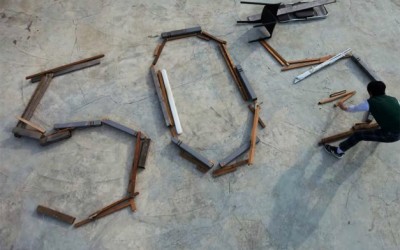
Recap "All of Us Are Dead" Episode 6
-
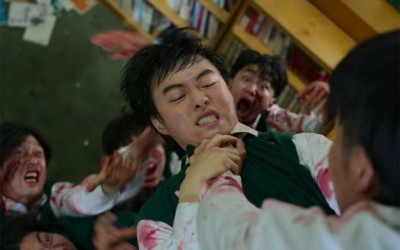
Recap "All of Us Are Dead" Episode 5
-
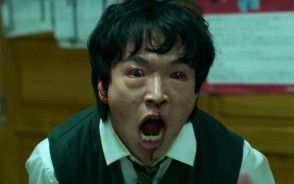
Recap "All of Us Are Dead" Episode 3
-
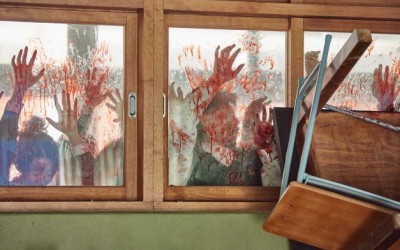
Recap "All of Us Are Dead" Episode 2
-

Recap "All of Us Are Dead" Episode 1
-

Recap "Moonshine" Ep 11-12
-
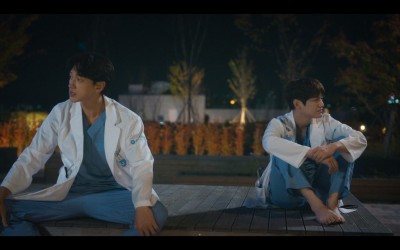
Recap "Ghost Doctor" Ep 7-8
-

Recap "Reset " Ep 15
-

Recap "Reset" Ep 14
-

Recap "Dream Garden" Ep 15
-

Recap "Dream Garden" Ep 14
-

Recap "Mirror: A Tale of Twin Cities" Ep 22
Genres
- Accident
- Action
- Adventure
- Alien
- Amnesia
- Ancient legend
- Animals
- Animation
- Arthouse
- Artificial Intelligence
- Award Winning
- Based on a Comic
- Based on True Story
- Betrayal
- Biography
- BL
- Bodyguard
- Bromance
- Business
- Chambara
- Childhood
- Christmas
- Cohabitation
- Cold Man
- Coma
- Comedy
- Concert
- Conglomerate
- Conspiracy
- Contract Relationship
- Corruption
- Crime
- Criminal
- Curse
- Dance
- Deity
- Demon
- Detective
- Disability
- Disaster
- Documentary
- Drama
- Eastern
- Educational
- Entertainment
- Environment
- Erotica
- Espionage
- Exorcism
- Exploitation
- Fairy
- Family
- Fantasy
- Fashion
- Feminism
- Food
- Foreign
- Friendship
- Game Developer
- Gangster
- Geishas
- Gore
- Goryeo Dynasty
- Grudge
- Gumiho
- Harem
- Hidden Identity
- Historical
- Horror
- Hostage
- Human
- Hypnotism
- Idol Drama
- Indie
- Instructional
- Investigation
- Jidai Geki
- Josei
- Kidnapping
- Kung Fu
- Law
- legal
- Lesbian
- LGBTQ+
- life
- Love Triangle
- Mafia
- Magic
- Manga
- Manhua
- Martial Arts
- Mature
- Medical
- melodrama
- Mermaid
- Military
- Miniseries
- Misunderstanding
- Monster
- Murder
- Music
- Musical
- Mystery
- Mythology
- Nature
- Neighbours
- Noir
- Novel
- Omnibus
- One shot
- Parody
- Phobia
- Poison
- police
- political
- Power Struggle
- Prison
- Professional
- Programmer
- psychiatry
- Psychological
- Reality
- Reality Show
- Reality TV
- Rebellion
- Religion
- Remake
- Republic
- Resurrection
- Revenge
- Rich Man
- Robot
- Romance
- RPG
- Rural
- Samurai
- Scholar
- School
- Sci-fi
- Seinen
- Serial Killer
- Short
- Sismance
- Sitcom
- Slapstick
- Slice of Life
- Society
- Soulmates
- Sports
- Supernatural
- Survival
- Suspense
- Swordsman
- Taiga drama
- Teamwork
- Tearjerker
- Teen
- Terrorist
- Thief
- Thriller
- Time Travel
- Tokusatsu
- Tomboy
- Tragedy
- Tragic Past
- Transmigration
- Trauma
- Treason
- Triad
- Underworld
- Unrequited Love
- urban drama
- Vampire
- Variety
- Variety show
- War
- Warrior
- Web Series
- Webtoon
- Werewolf
- Western
- Witch
- Workplace
- Wuxia
- Yakuza
- Yaoi
- Youth
- Yuri
- Zombie

